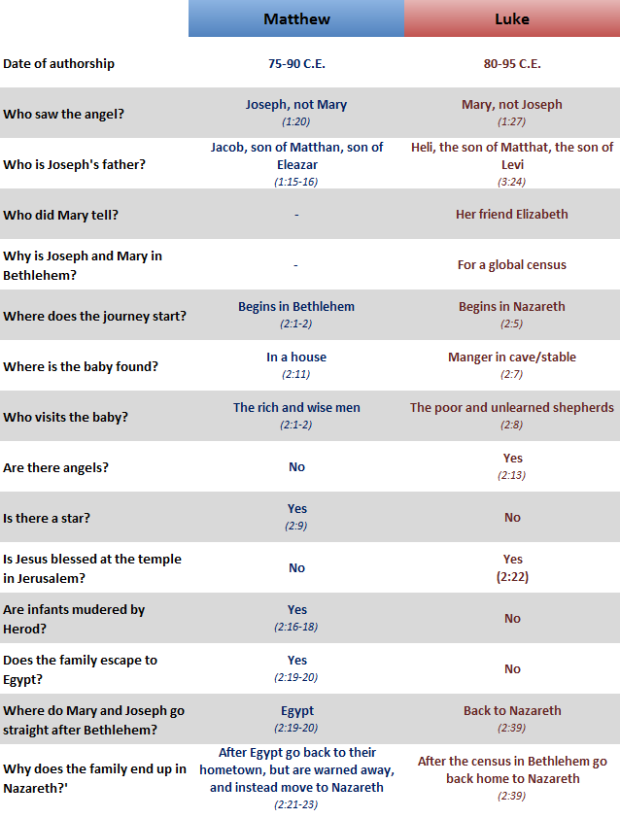Matthews famous prophecy that a virgin shall conceive a son was taken wholly out of context and breaks every rule of biblical hermeneutics.
1. MATTHEWS QUOTE
“All this took place to fulfill what the Lord had said through the prophet: “The virgin will conceive and give birth to a son, and they will call him Immanuel” (Mat 1:22-23)
2. THE ORIGINAL PASSAGE
The original passage in Isaiah is NOT about a global savior 500 years into the distant future, but about the destruction of two nations in Isaiahs own time. Aram (Syria) and Israel were planning to invade Judea, but Isaiah tells King Ahaz that God will protect Judea from this invasion, and destroy the invaders (Isaiah 7:5-9). As a sign of God’s swift destruction of these two nations:
“Therefore the Lord himself will give you a sign: The virgin will conceive and give birth to a son, and will call him Immanuel. He will be eating curds and honey when he knows enough to reject the wrong and choose the right, for BEFORE the boy knows enough to reject the wrong and choose the right, the land of the two kings you dread will be laid waste.”
A few verses later Isaiah impregnates a young woman, she bears a child, and right after this happens Syria is attacked (Isaiah 8:3-5). Prophecy fulfilled, hundreds of years before the era of Jesus.
WHAT IS THE RESPONSE?
For the record, conservative biblical scholars are aware of this, and the those who are conservative generally excuse Matthew by saying he was using a literary construct called ‘midrash’ which is basically taking a few words or phrases from a passage that is clear, and pulling out some secret meaning.
For example, if I say “Tomorrow we will vote for a new president, and he will be a great man, I’m sure he will serve our country well for 4 years” A person using ‘midrash’ could rip the phrase “he will be a great man” out of the whole narrative and say “this speaks of my child, and he will be great man, and he will one day be the ruler of the whole world.” Today if someone uses an intepretive framework like ‘midrash’ they fail seminary and are called heretics for twisting the scripture to make it mean whatever they want. But Matthew gets a pass.
